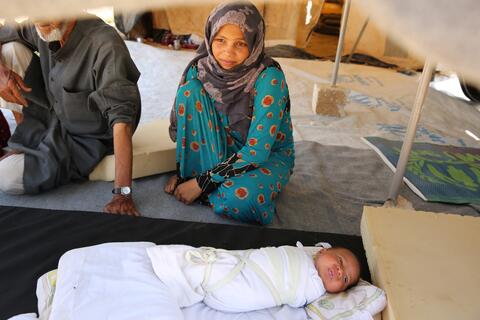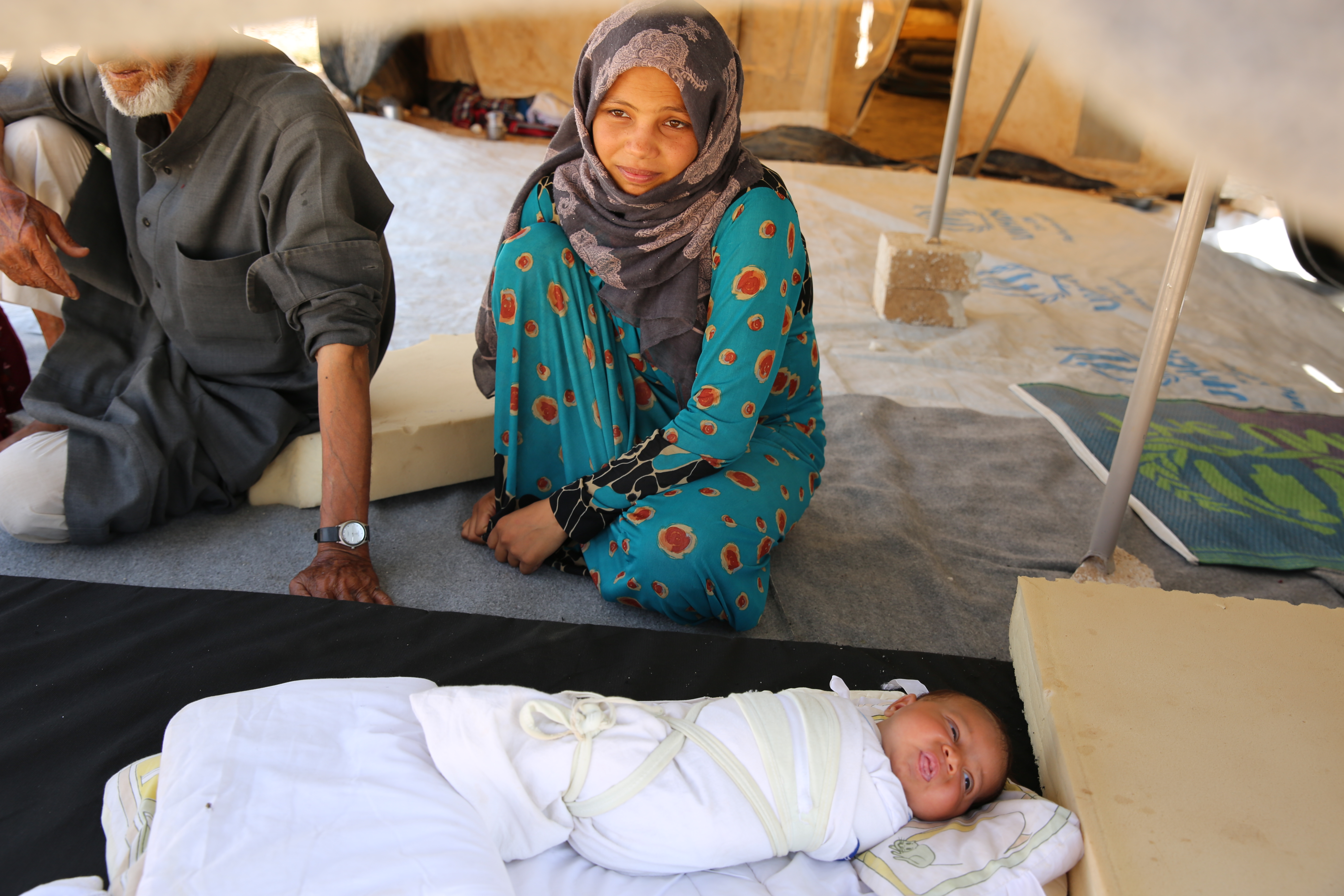Even as some parts of Syria appear to be stabilizing, the crisis has long since passed a tipping point in terms of generational change, and its effects will undoubtedly continue for many years to come. This is particularly true in the case of adolescent girls who spent their early years in war or displacement.

of death for 15-19 year old girls around the world. © UNFPA-Syria
In humanitarian crises, the risks of gender-based violence against women and girls often multiply, and the situation in Syria and the region is no exception. In a society ingrained with patriarchal attitudes, women and girls often find themselves at a significant disadvantage, especially in light of disruptions in community networks, safety nets and rule of law. For adolescent girls, violation of privacy, movement restrictions, forced and early marriage, and sexual and physical violence continue to be part of their daily reality. The experiences they have gone through over the past eight years have defined and indelibly shaped their formative awareness and is likely to impact them for the rest of their lives.
16-year-old Mariam from Aleppo describes the fear that has come to define the lives of so many Syrian adolescent girls:
“For girls our age, life quickly became an open-air prison after the war. Suddenly, we were told not to leave our houses because we might get harassed, raped or kidnapped. I’m told that being married is my only path to true safety, but I don’t want to get married. I’m simply not ready.”
In an environment that has been destabilized by protracted conflict, fear of sexual violence and exceeding poverty have contributed to a spike in child marriage rates. Evidence suggests that a third of Syrian women aged 20-24 were married before the age of 18- a significant increase from child marriage rates before the onset of the crisis.
“You see them all the time in the camp – these young girls being married off to older men. They would be 13, 14, even 12 in one case. Most are too young to know what they are being forced into, and many end up divorced several times by the time they reach adulthood. It is simply criminal because it destroys them,” said Jiyan, a survivor of child marriage from Al-Hasakah, Syria.
Further compounding the struggles Syrian child brides face is the fact that many marriages are unregistered, often leaving adolescent girls with little protection for themselves or their children. Dania, a Syrian refugee from Aleppo was forced into early marriage shortly after the war broke out in 2011.
“I was forced by my father and brothers to marry when I was 14, to a man a decade older than I was. It was a toxic and violent relationship that lasted less than two years, by which time I had given birth to my first child,” said Dania, “The marriage was officiated by a sheikh because I did not have my official documents, so when I finally managed to free myself, there was no legal proof that I was married. His family took my son from me and I have only been able to see him twice in the past four years.”
Through 133 women and girls safe spaces, UNFPA provides services and support to survivors of gender- based and harmful practices. Such services include protection, psychosocial support, awareness raising, case management and legal aid.
“For me, the safe space became more than a lifeline. Sometimes, life feels like one of those strange nightmares in which you are trying to call for help but your voice is caught in your throat. Coming to this centre felt like I finally got my voice back,” said Rama, a survivor of gender-based violence from Qamishli, Syria. Rama has been receiving psychological support services from a Women and Girls Safe Space that is supported by UNFPA.
For more voices from Syrian women and girls, read “When caged birds sing: stories of Syrian adolescent girls.” Check #AWomanEvenHere on our Facebook and Twitter accounts for more on women and girls’ needs in humanitarian crises in the Arab States region.


